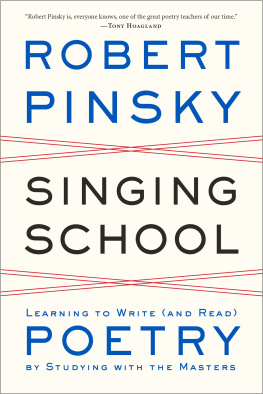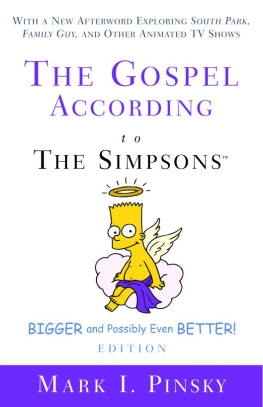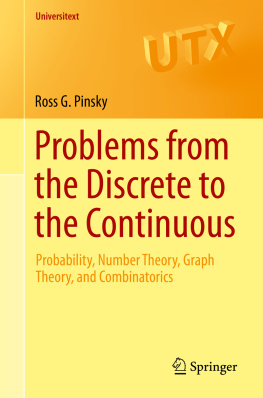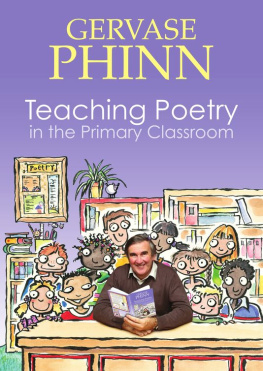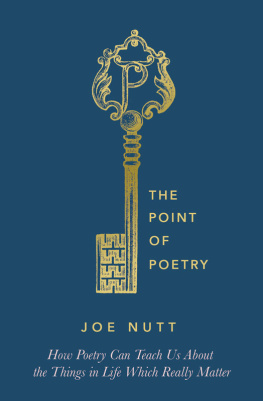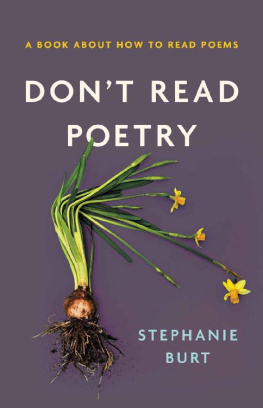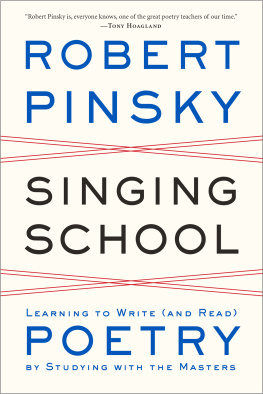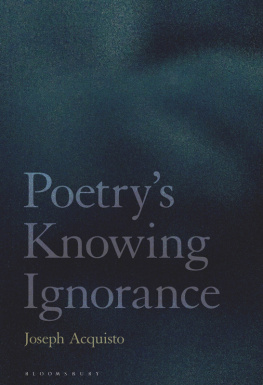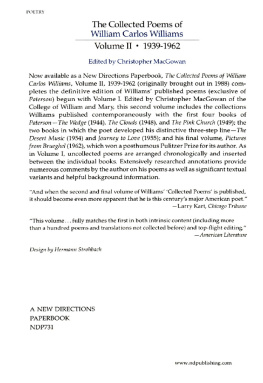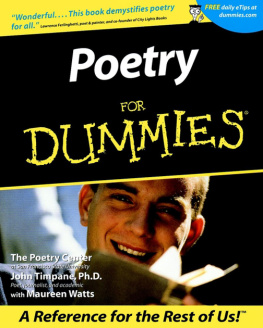Aphra Behn (16401689), arguably the first female professional writer, was a dramatist, poet, and writer of amatory fiction. Her Oroonoko , written after visiting an English sugar-plantation colony in Venezuela, dramatized the horrors of slavery to the English public. A devoted supporter of King Charles II, she was recruited in 1666 as a political spy under the code name Astea, a pseudonym under which she subsequently published many of her works. Elizabeth Bishop (19111979) was born in Worcester, Massachusetts. Her father died when she was an infant, and her mother was institutionalized in 1916, with Bishop raised among family members in Nova Scotia and Massachusetts. While still an undergraduate at Vassar, Bishop met Marianne Moore, an important advocate and friend, and she maintained a lifelong, deep friendship with Robert Lowell.
She lived for years in Brazil with Lota de Macedo Soares. Bishop published very few poems in her lifetimefewer than ninety. William Blake (17571827) was born in London. A professional engraver, Blake produced most of his best-known works, including Songs of Innocence and Experience , as illustrated books with hand-colored relief etchings. A contentious, unconventional figure, he was charged on one occasion for assaulting a soldier and slandering the king. In Blakes epic poem Milton , the poet John Milton descends from heaven to act as Blakes spiritual guide.
Louise Bogan (18971970) was the daughter of a paper-mill worker. She studied at Boston University for one year before dropping out. Determined to become a writer, Bogan moved first to New York and then to Vienna to pursue her craft. She was for many years the poetry reviewer for The New Yorker and became the fourth Poetry Consultant to the Library of Congress. She had an intense love affair and an enduring friendship with fellow-poet Theodore Roethke. Sterling Brown (19011989) was born in Washington, DC, the son of a former slave who became a professor at the Howard University Divinity School.
After graduating from Williams College and earning an A.M. at Harvard University, he embarked on a long academic career at Howard University. He was a pioneer in the appreciation of African American literature and folklore, and his poetry was highly influenced by jazz, the work song, the ballad, and the blues. Among his notable students are Toni Morrison and Kwame Nkrumah. Thomas Campion (15671620) was born in London and was a doctor by trade. His lasting achievements are as a poet and a composer.
He composed important collections of lyrics for lute and voice and several court masques, as well as individual poems. Campion wrote a treatise, Observations in the Art of English Poesy , in which he argued against rhymeof which he was a masterand for the adoption of classical, quantitative meters. This prompted a response from Samuel Daniel, his Defense of Rhyme . Lewis Carroll (18321898) is the pseudonym of Charles Lutwidge Dodgson. A brilliant mathematician and an important photographer, Dodgson was a lecturer at Christ Church, Oxford, where he met college dean Henry Liddell and his family. In the course of a rowing trip, Dodgson entertained the Liddell children with a story that was later written out and eventually published as Alices Adventures in Wonderland .
That book and its companion Through the Looking-Glass and What Alice Found There contain many poems and commentaries on poetry. Gregory Corso (19302001) was abandoned as an infant on the steps of the New York Foundling Home. He spent much of his childhood on the streets and in jails and, eventually, prison for petty crimes. Thanks to a substantial library left by a mob-boss inmate, Corso started reading the classics and writing his first poems while serving out his sentence. Soon after his release from prison, he met Allen Ginsberg, who became a major influence and advocate. Peter. Peter.
Cowper suffered from mental agonies that resulted in prolonged depression, a suicide attempt, and treatment in an asylum. He endured a conviction that he was doomed to eternal damnation. Nevertheless, Cowper became a popular and admired poet. He also composed notable and well-known hymns, including Light Shining Out of Darkness. Emily Dickinson (18301886) was born in Amherst, Massachusetts, and educated at Amherst Academy and briefly at Mount Holyoke Female Seminary. Burdened by the deaths of family and friends, she lived a life of increasing seclusion.
Though only a handful of her poems were published in her lifetime, Dickinson was prolific, writing nearly eighteen hundred poems, most of which were discovered after her death by her sister Lavinia, who made it her mission to see them published. Alan Dugan (19232003) grew up in Jamaica, Queens, New York. He served in the army during World War II. In 1961, Dugans first book of poems, laconically and characteristically entitled Poems , was awarded both the Pulitzer Prize and the National Book Award. Subsequent books were Poems Two , Poems Three , and so forth, culminating in Poems Seven: New and Complete Poetry . Unlike many poets of his generation, Dugan did not teach at a college or university.
He lived on Cape Cod, where his social world included visual artists as well as writers. Elizabeth I (15331603), Queen of England and Ireland from the age of twenty-five until her death, was declared illegitimate by her father, Henry VIII, after the execution of her mother, Anne Boleyn, in 1534. Elizabeth was later restored to the line of succession. She has been credited with several poems, though attribution cannot be positive. An eloquent public speaker and correspondent, she studied with the great humanist Roger Ascham and translated works by Petrarch and Boethius. Robert Frost (18741963) moved with his mother and sister from San Francisco to the mill town of Lawrence, Massachusetts, after his fathers death in 1885.
Summers visiting the New Hampshire farm of a great-aunt and uncle provided the setting associated with many of Frosts poems. Frosts biographer, Lawrence Thompson, was rather harsh on him. Perhaps even more damagingly, his editor Edward Connery Lathem changed the punctuation of Frosts poems in posthumous editions, making a prized book of the pre-Lathem Complete Poems , which also includes Frosts valuable essay The Figure a Poem Makes. George Gascoigne (ca. 15351577) produced the first comedy in English prose and the first significant work on English prosody, a still-useful essay entitled Certain Notes of Instruction Concerning the Making of Verse of Rhyme in English. During his time as a soldier in the Netherlands, someone published an unauthorized edition of his work, which Gascoigne later edited and published under the title One Hundreth Sundrie Flowres.
Allen Ginsberg (19261997) was the son of Louis Ginsberg, a New Jersey poet and high school English teacher who knew William Carlos Williams. Williams wrote in his introduction to Allen Ginsbergs Howl and Other Poems : I never thought hed live to grow up and write a book of poems. Counterbalancing this vision of Ginsberg as a disturbed youth is the mature mans commitment to political justice, to Buddhism, andas his published journals demonstrateto the craft and history of poetry. Fulke Greville (15541628) came to the royal court with his friend and fellow-aristocrat Philip Sidney. Like Sidney, Greville was a man of wealth, power, and learning as well as talent. Greville, in writing about his friend, refers to Sidney as a far brighter spirit than himselfviewed by some readers as a generous overstatement.
Grevilles sequence of poems, Caelica , moves by degrees from early poems of flirtation, courtship, and love-complaint into the later poems of moral and religious preoccupations. Thom Gunn (19292004) was the son of an English newspaper editor. A year after graduating from Trinity College, Cambridge, he published his first book, Fighting Terms, to great acclaim, and went on to receive a Stegner Fellowship at Stanford, where he worked with poet and critic Yvor Winters. He taught for many years at the University of California, Berkeley, and lived in San Francisco. The life of that city, including gay life and the AIDS epidemic, is one of his important subjects. Thomas Hardy (18401928) is the rare example of a great writer in both fiction and poetry.
Next page
